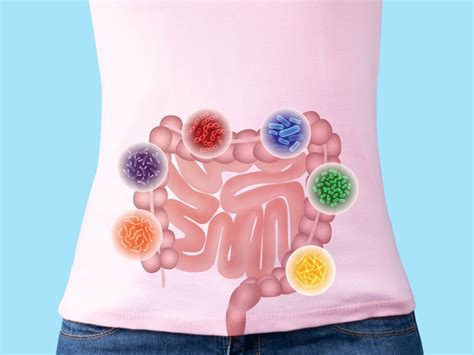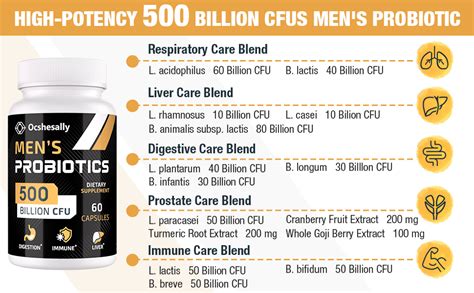How can men optimize gut health for improved energy, mood & performance?

The Crucial Link Between Gut Health and Male Vitality
For too long, the gut has been underestimated, often viewed merely as a digestive organ. However, modern science increasingly reveals that a healthy gut microbiome – the trillions of bacteria, fungi, and other microbes living in your intestines – is foundational to overall well-being, especially for men. From modulating energy levels and influencing mood to impacting athletic performance and hormonal balance, a thriving gut is an indispensable ally.
Many men experience symptoms like fatigue, brain fog, irritability, digestive issues, and even reduced physical stamina without realizing the underlying cause could be an imbalanced gut. Optimizing this internal ecosystem can unlock significant improvements across multiple facets of life.

Understanding the Gut-Body Connection
Energy Production and Metabolism
Your gut microbes play a vital role in extracting nutrients from food, synthesizing vitamins (like B vitamins and K), and producing short-chain fatty acids (SCFAs) such as butyrate, which fuel cells and support metabolic health. An imbalanced gut can lead to nutrient malabsorption, inflammation, and reduced energy efficiency, manifesting as chronic fatigue.
Mood Regulation and Brain Health
The gut-brain axis is a bidirectional communication network linking the central nervous system with the enteric nervous system of the gut. Gut bacteria produce neurotransmitters like serotonin (a key mood stabilizer), dopamine, and GABA. A dysbiotic gut can disrupt this communication, contributing to anxiety, depression, and cognitive decline.
Performance and Hormonal Balance
For men, gut health can directly influence physical performance and hormonal regulation, including testosterone levels. Inflammation originating in the gut can negatively impact testosterone production and increase cortisol (stress hormone). A robust gut also supports nutrient absorption critical for muscle repair, recovery, and overall athletic function.

Practical Strategies for Optimizing Gut Health
1. Prioritize a Diverse, Whole-Food Diet
- Fiber-Rich Foods: Soluble and insoluble fibers feed beneficial gut bacteria. Incorporate plenty of fruits, vegetables, legumes, and whole grains.
- Fermented Foods: Kefir, sauerkraut, kimchi, yogurt, and kombucha are natural sources of probiotics, introducing beneficial bacteria directly to your gut.
- Lean Proteins & Healthy Fats: Essential for overall health and provide building blocks without promoting gut inflammation.
- Limit Processed Foods & Sugars: These can feed harmful bacteria, promote inflammation, and disrupt the delicate balance of your microbiome.
2. Stay Hydrated
Adequate water intake is essential for digestive function, helping to move food through the digestive tract and supporting the mucosal lining of the gut.
3. Manage Stress Effectively
Chronic stress can significantly impair gut function, altering gut motility and permeability. Incorporate stress-reduction techniques such as meditation, deep breathing, yoga, or spending time in nature.

4. Regular Physical Activity
Exercise has been shown to increase the diversity of beneficial gut bacteria and reduce gut transit time, both positive for digestive health and overall well-being.
5. Consider Targeted Supplementation (Wisely)
- Probiotics: A high-quality probiotic supplement with diverse strains can help replenish beneficial bacteria, especially after antibiotic use or during periods of stress.
- Prebiotics: These are fibers that feed your beneficial gut bacteria. They can be found in foods like garlic, onions, bananas, and asparagus, or as a supplement (e.g., inulin, FOS).
- Omega-3 Fatty Acids: Found in fish oil, these can help reduce inflammation throughout the body, including the gut.
- Vitamin D: Essential for immune function and can influence gut barrier integrity.

6. Prioritize Quality Sleep
Poor sleep can disrupt your gut microbiome, creating an environment that favors less beneficial bacteria. Aim for 7-9 hours of quality sleep per night.
Listen to Your Gut
Paying attention to how different foods and lifestyle choices affect your body is key. Symptoms like bloating, gas, irregular bowel movements, or persistent fatigue are signals from your gut that something might be amiss. Keep a food and symptom journal to identify potential triggers and make informed adjustments.

Conclusion
Optimizing gut health is not a one-time fix but an ongoing commitment to a holistic lifestyle. By focusing on a diverse, whole-food diet, managing stress, staying active, prioritizing sleep, and considering targeted supplementation, men can significantly enhance their gut microbiome. The rewards are substantial: sustained energy, a more stable mood, sharper cognitive function, and improved physical performance, paving the way for a more vibrant and fulfilling life.









